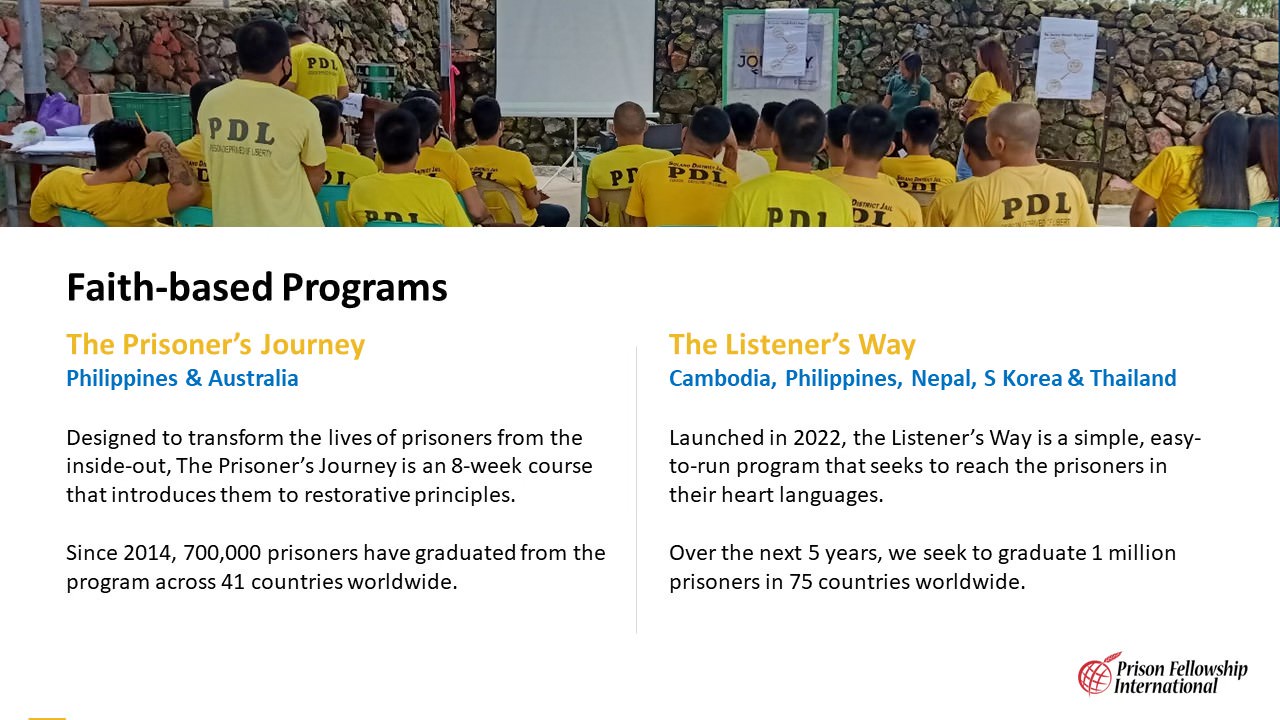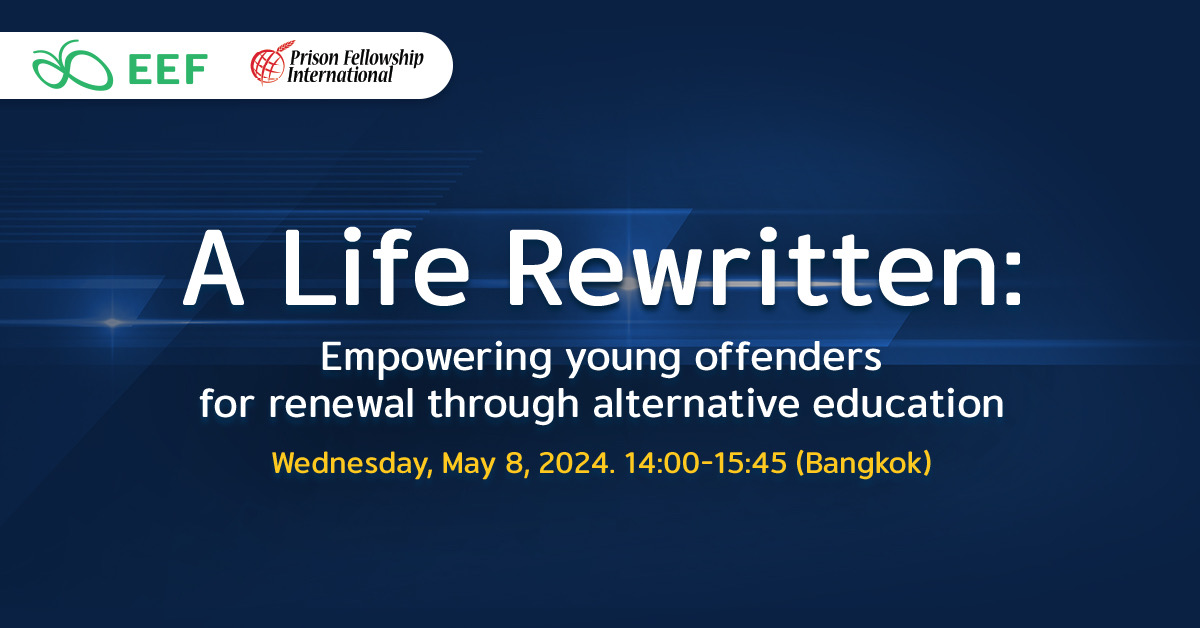
Across the globe, there are over 18,000 prisons, housing approximately 12.2 million individuals, with around 261,200 of them being children.
Over the past two decades, Asia has seen a 40% increase in its prison population. This alarming number compels relevant sectors to come up with effective strategies to alleviate prison overcrowding. Education emerges as one of the solutions.
The Equitable Education Fund (EEF) Thailand, therefore, joined hands with the Prison Fellowship International, to organize an online seminar, “Rewritten: Empowering young offenders for renewal through alternative education.” This webinar discussed educational models that could bring both individual and social change to the criminal justice system, especially for young offenders.
The seminar delves into critical topics, including the limited access to education faced by juvenile offenders, the pivotal role of prison education in facilitating rehabilitation and reintegration, and practical examples from various countries.
Why Prison Education Important
Education in prisons benefits both individual offenders and society. With a significant number of prisoners coming from economically disadvantaged backgrounds, education is a gateway to improve their social economy.
Access to quality education will enhance offenders’ prospects for employment upon release. Furthermore, It will strengthen their relationship with their families. As Daniel Bey, Regional Director for Asia & the Pacific at Prison Fellowship International, emphasizes,
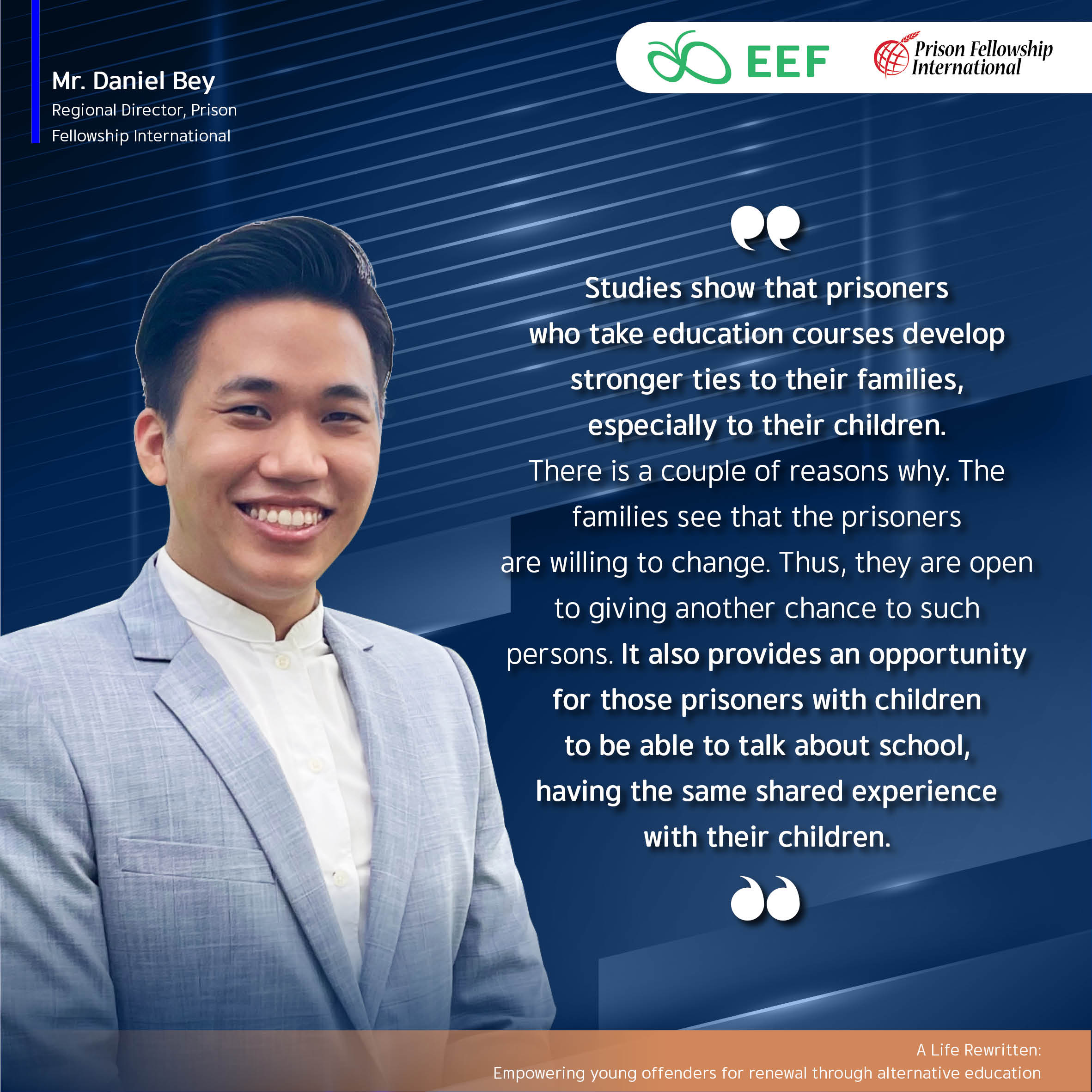
“Prisoners who took education will develop relationships with their family,especially with their children for a couple of reasons. When the family sees that a prisoner is willing to change, they are more open to giving them another chance. Education also provides opportunities for prisoners with children to talk about school,”
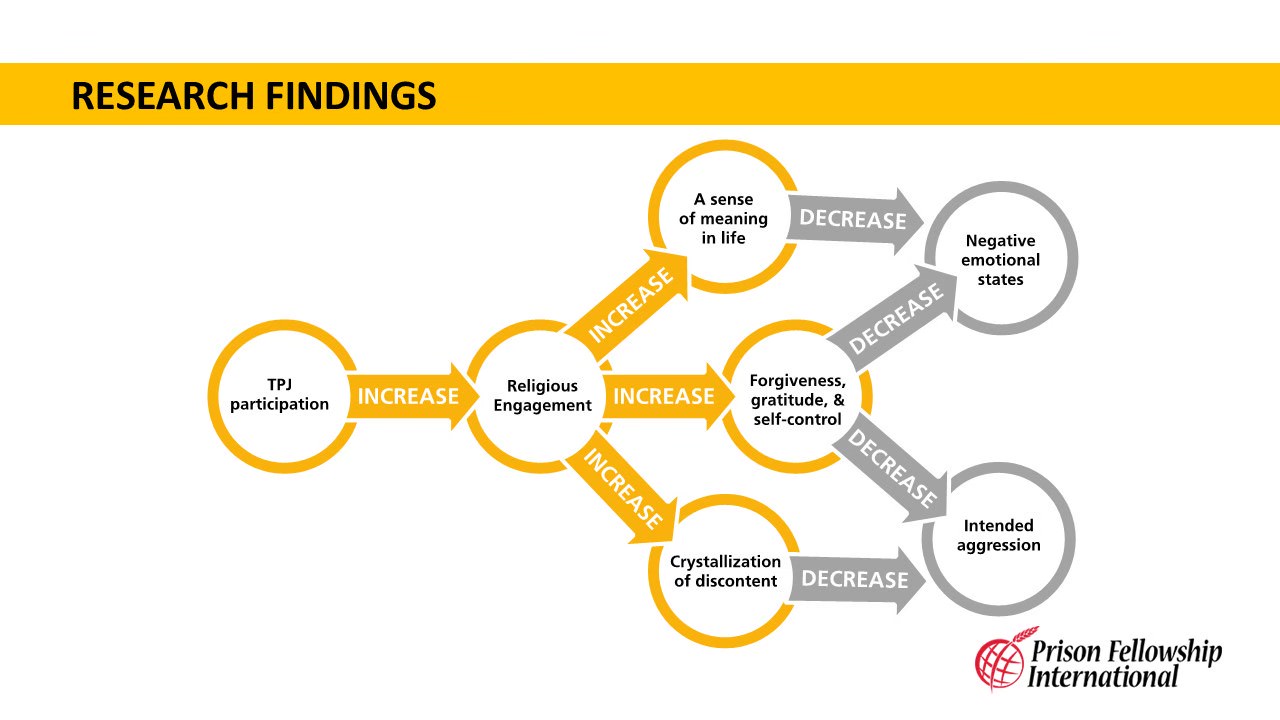
Daniel also indicates that offenders who participated in education will be less likely to recommit crime. This will reduce prison overcrowding, and public funding for prisons will consequently be reduced.
Preparing for Rehabilitation
Faith-based education and academic programs in detention centers empower offenders to find purpose, explore their values, and develop crucial life skills, ultimately reducing crime rates.
However, successful reintegration into society requires practical skills for employment. Many countries are therefore offering non-academic training in locally relevant skills. Malaysia, for example, is giving digital literacy training. Cambodia provides training in juvenile haircutting. Taiwan provides training in craftsmanship, music or even maternal child health for female prisoners.
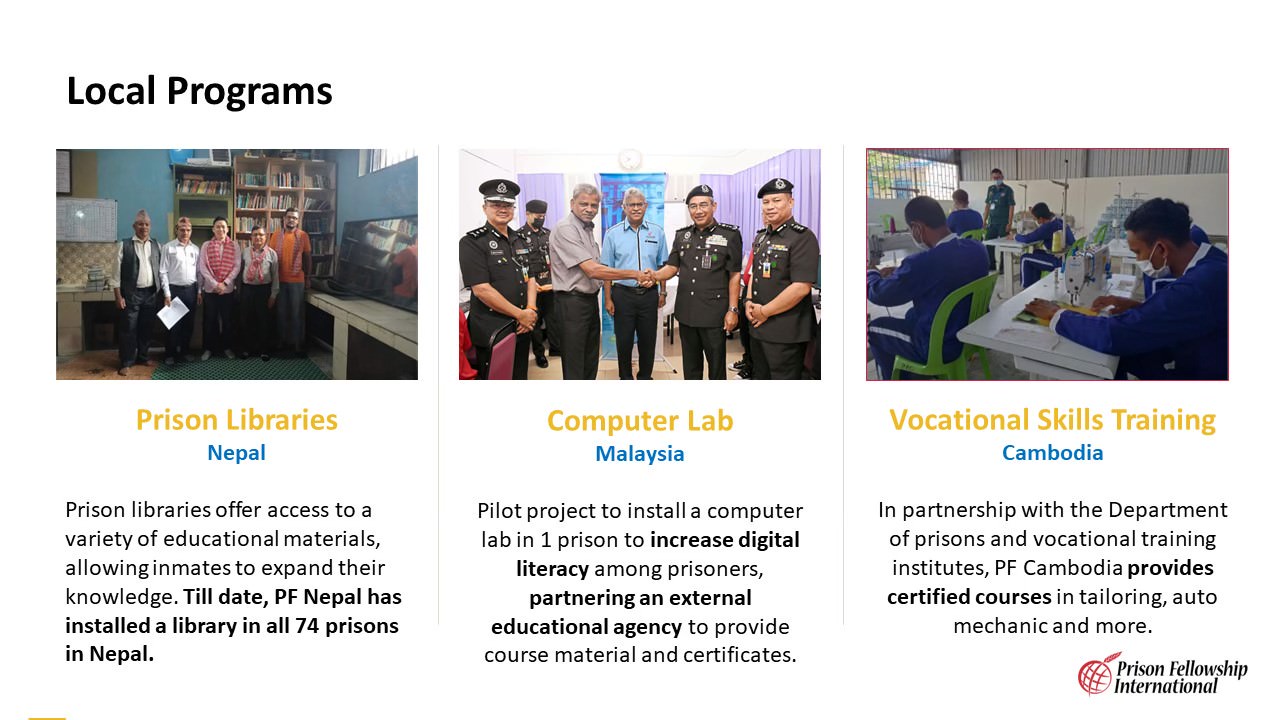
Daniel also notes that it is important to pair education with rehabilitation programs, emphasizing the need for counseling and skills development to equip juveniles with the tools for successful reintegration.
“What makes the prison education program effective is how education is paired with rehabilitation programs. We need the shift toward counseling and skills development to better equip juveniles with tools needed to reintegrate into society successfully.”

Alternative Education for Young Offenders in Thailand
Thailand is developing an alternative education model called the “Opportunity Model”. The model’s focus is to help young offenders in detention centers rehabilitate into society.
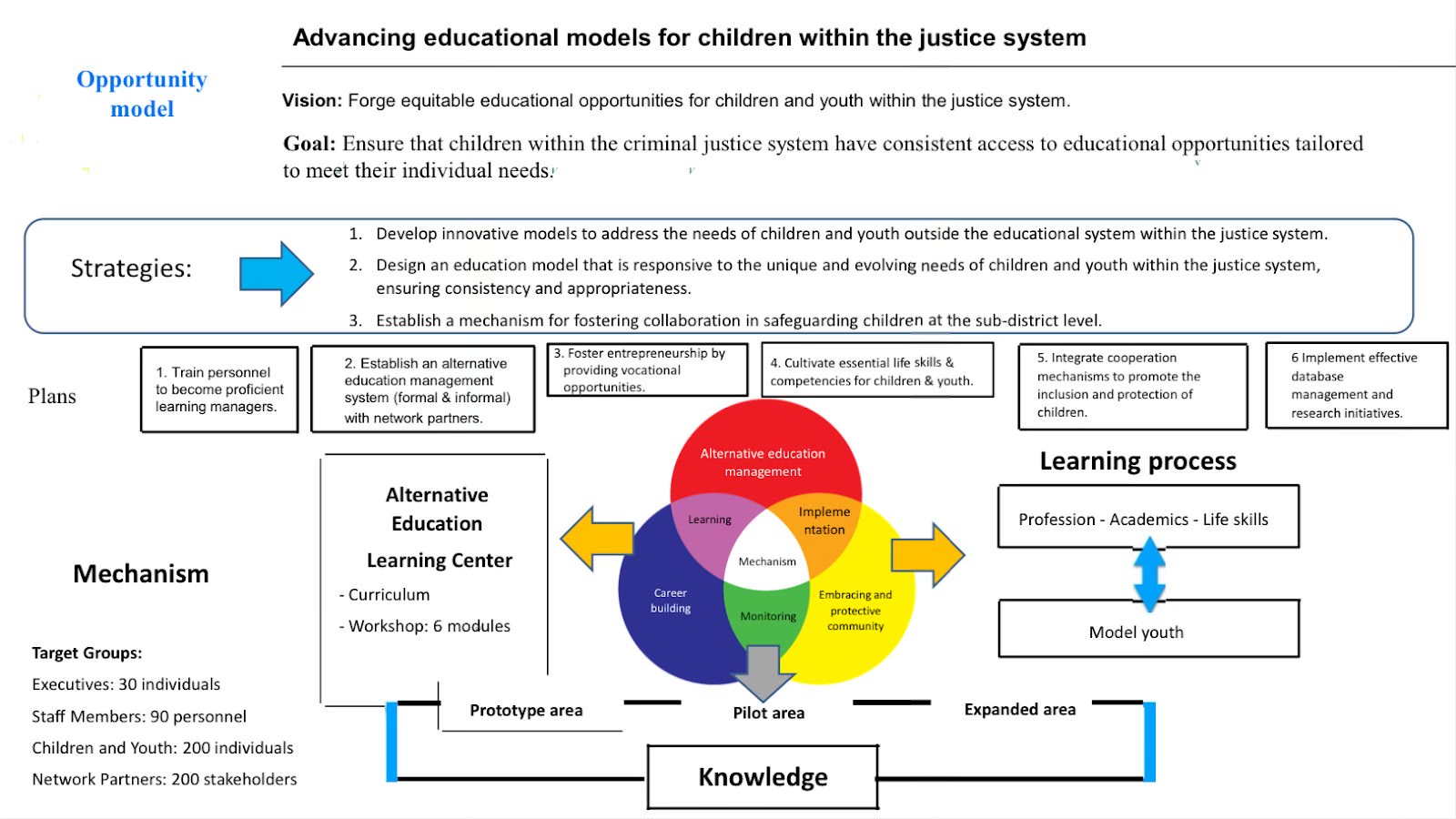
For one year since the program kicked off, it has developed an educational environment in detention centers, providing them with academic education, vocational training, and life skills, as well as working with communities and local government agencies to prevent young offenders from committing a crime. The program managed to change three main areas: young offenders, teachers, and the system, according to
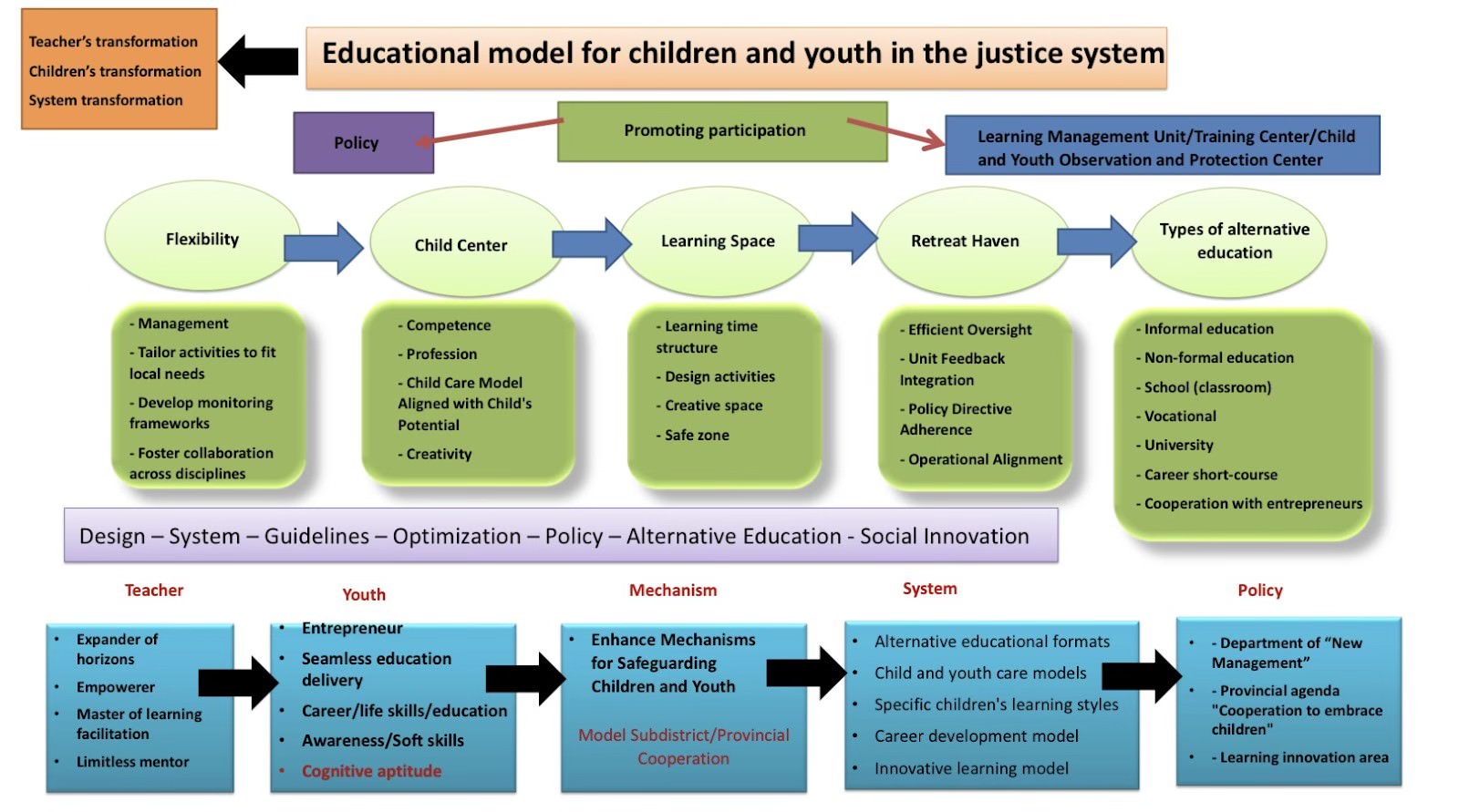
“We asked young offenders to design their new life, to overcome the past, and equip them with practical skills. We change teachers to become learning designers, and in terms of the system, we create a new learning environment in the detention center that motivates young offenders to learn,” he said.
Supachai further explained that the successful change in the system consisted of four important points: 1.) young offenders’ flexibility in designing their education: 2.) vocational learning that is locally relevant 3.) new purpose in life and 4.) career opportunities after they are released from prison.
Challenges
Education in detention centers has helped many young offenders incorporate back into society. According to panelists, some pursue further study. Many became business owners. There are challenges, however, that remain unaddressed.
This includes rehabilitation programs, socio-economic disparities, mental health, poor prison conditions, and lack of community support, which Daniel emphasized as the most important,
“One of the most important challenges to overcome is society. It plays a crucial role. There is still a lack of community help and support. We need to strengthen community-based programs, in which family, friends, and surrounding people provide support.”
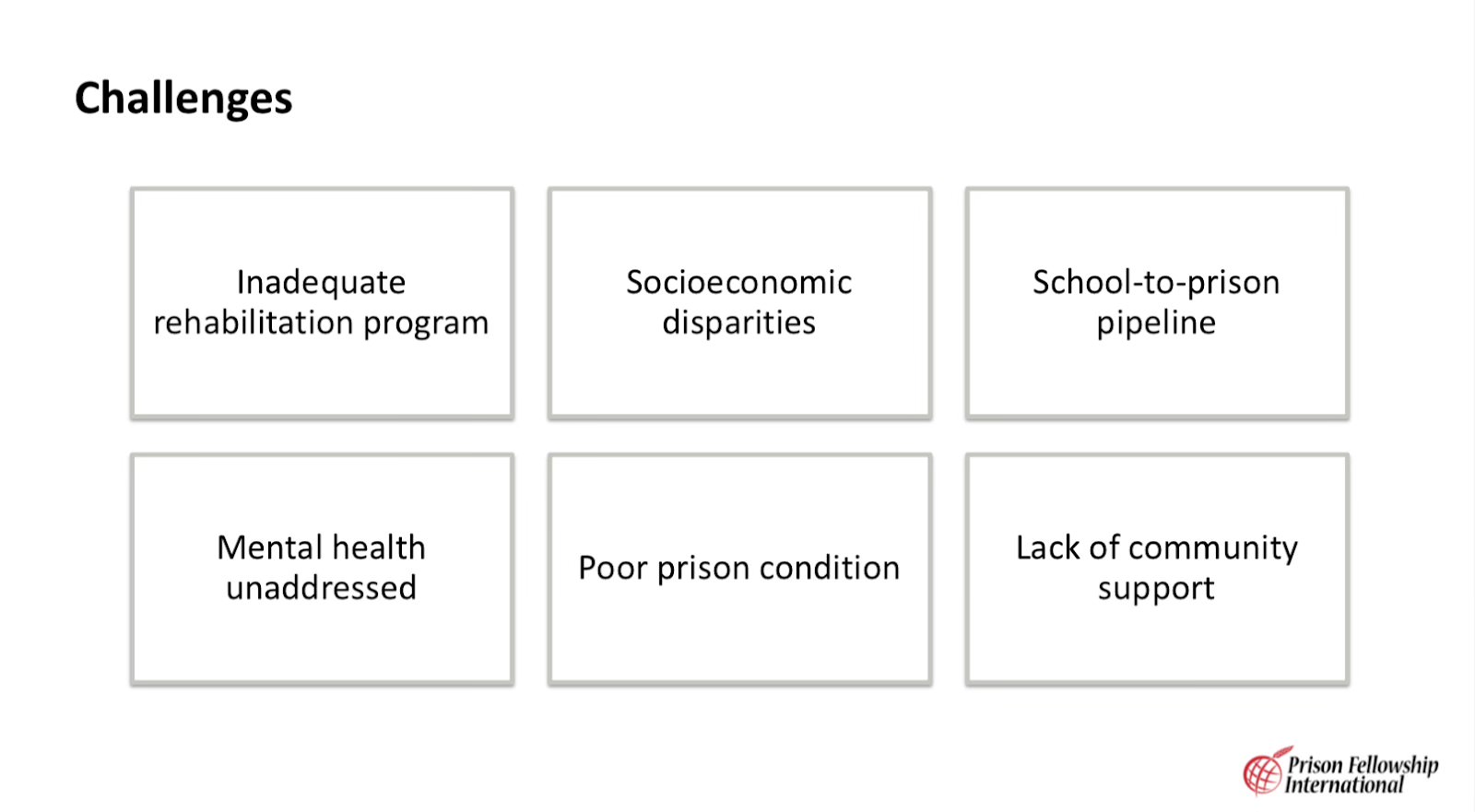
Dr. Netdao Yangyubon, Head of Social Innovation Center for Local Governance and Sustainable Development, Faculty of Political Science, Prince of Songkla University, Pattani Campus, agrees with this, saying that, “it is important that we build capacity and create an environment in communities that prevent young people from committing crime to safeguard them against future risks.”
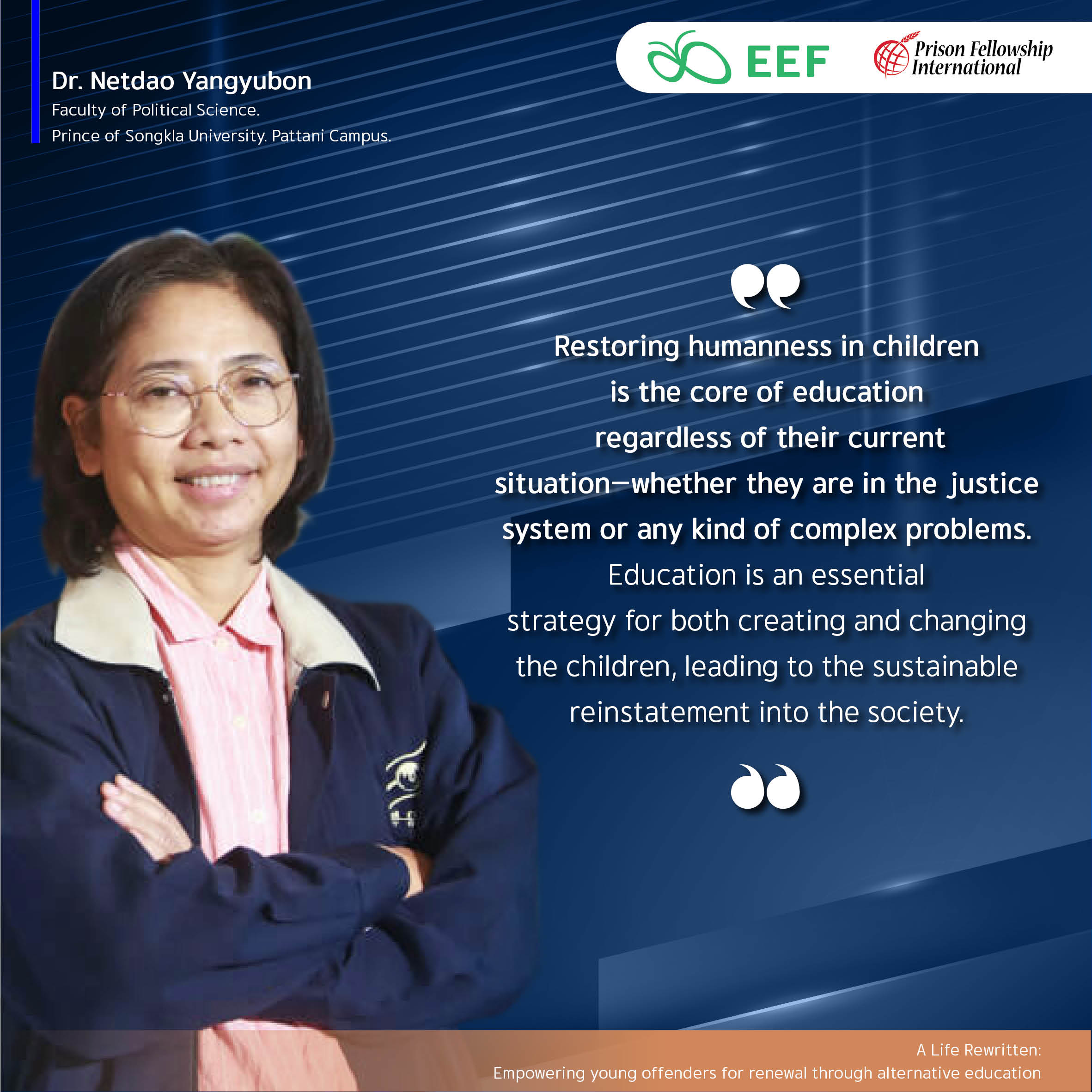
Another challenge is the tracking and evaluation after release. Addressing the question during the Q&A session, panelists state that proper assessment before release and collaboration with local communities is important.
“The youth needs to be properly assessed to determine if they are ready for reintegration. Youth that have a level of psychiatric need upon release will be a threat to society. We need to understand the reality of things. They require different trajectories and need to be monitored, tracked through different means, and take a longer journey and provide an environment that suits them,” Denial said.
“When we started the program, we collaborated with local communities and government agencies. We divided youth into three groups: those who are ready to rehabilitate into society, those slightly at risk, and at-risk groups. Then we work with their communities to monitor and support them to live in society,” Supachai said.
The ultimate goal of education in detention centers is to prepare offenders for successful reintegration into society. Through innovative approaches and collaboration, these programs offer second chances and opportunities for transformation, emphasizing the belief that everyone deserves a chance to improve and contribute positively to society.
“Everybody can make mistakes. Everybody needs a second chance. Young people need to give them room to improve. Detention centers are not to restrict people’s opportunities but to provide alternatives for these people. It’s about changing the whole ecosystem, and they will start to transform themselves.” said Dr. Netdao.
Source:
Record of the event https://www.facebook.com/100064330196090/videos/979849993518033

